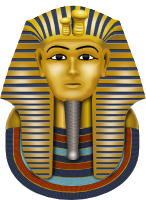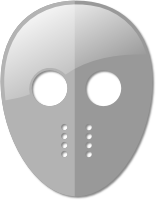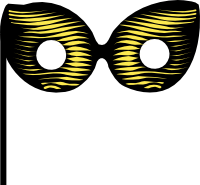Associations to the word «Mask»
Noun
- Stench
- Helmet
- Odor
- Cloak
- Allele
- Goggle
- Whine
- Warder
- Masquerade
- Wearing
- Wearer
- Odour
- Costume
- Halloween
- Domino
- Facade
- Oxygen
- Libre
- Wig
- Glove
- Visage
- Wear
- Wafer
- Wrestle
- Pigment
- Etching
- Disguise
- Persona
- Visor
- Perfume
- Illusion
- Banner
- Totem
- Slit
- Scent
- Mask
- Dominance
- Phylogeny
- Canister
- Carnival
- Figurine
- Face
- Wrestler
- Noise
- Batman
- Mummy
- Clown
- Joker
- Goaltender
- Puppet
- Diver
- Gas
- Replica
- Lust
- Sanity
- Gotham
- Crusader
- Smell
- Grimace
- Ski
- Medusa
- Hose
- Carving
- Tight
Adjective
Pictures for the word «Mask»
Wiktionary
MASK, noun. A cover, or partial cover, for the face, used for disguise or protection.
MASK, noun. That which disguises; a pretext or subterfuge.
MASK, noun. A festive entertainment of dancing or other diversions, where all wear masks; a masquerade
MASK, noun. A person wearing a mask.
MASK, noun. (obsolete) A dramatic performance, formerly in vogue, in which the actors wore masks and represented mythical or allegorical characters.
MASK, noun. (architecture) A grotesque head or face, used to adorn keystones and other prominent parts, to spout water in fountains, and the like; -- called also mascaron.
MASK, noun. (fortification) In a permanent fortification, a redoubt which protects the caponiere.
MASK, noun. (fortification) A screen for a battery
MASK, noun. (zoology) The lower lip of the larva of a dragonfly, modified so as to form a prehensile organ.
MASK, noun. (Puebloan) (anthropology) A ceremonial object used in Puebloan kachina cults that resembles a Euro-American masks. (The term is objected as an appropriate translation by Puebloan peoples as it emphasizes imitation but ignores power and representational intent.)
MASK, noun. (computing) (programming) A pattern of bits used in bitwise operations; bitmask.
MASK, noun. (computer graphics) A two-color (black and white) bitmap generated from an image, used to create transparency in the image.
MASK, verb. (transitive) To cover, as the face, by way of concealment or defense against injury; to conceal with a mask or visor.
MASK, verb. (transitive) To disguise; to cover; to hide.
MASK, verb. (transitive) (military) To conceal; also, to intervene in the line of.
MASK, verb. (transitive) (military) To cover or keep in check.
MASK, verb. (intransitive) To take part as a masker in a masquerade
MASK, verb. (intransitive) To wear a mask; to be disguised in any way
MASK, verb. (transitive) (computing) To set or unset (certain bits, or binary digits, within a value) by means of a bitmask.
MASK, verb. (transitive) (computing) To disable (an interrupt, etc.) by unsetting the associated bit.
MASK, noun. A mesh.
MASK, noun. (UK dialectal) (Scotland) The mesh of a net; a net; net-bag.
MASK, noun. (UK dialectal) Mash.
MASK, verb. (transitive) (UK dialectal) To mash.
MASK, verb. (transitive) (UK dialectal) (brewing) To mix malt with hot water to yield wort.
MASK, verb. (UK dialectal) (Scotland) To prepare tea in a teapot; alternative to brew.
MASK, verb. (transitive) (UK dialectal) To bewilder; confuse.
MASK SHELL, noun. (zoology) Any spiral marine shell of the genus Persona, having a curiously twisted aperture
Dictionary definition
MASK, noun. A covering to disguise or conceal the face.
MASK, noun. Activity that tries to conceal something; "no mask could conceal his ignorance"; "they moved in under a mask of friendship".
MASK, noun. A party of guests wearing costumes and masks.
MASK, noun. A protective covering worn over the face.
MASK, verb. Hide under a false appearance; "He masked his disappointment".
MASK, verb. Put a mask on or cover with a mask; "Mask the children for Halloween".
MASK, verb. Make unrecognizable; "The herb masks the garlic taste"; "We disguised our faces before robbing the bank".
MASK, verb. Cover with a sauce; "mask the meat".
MASK, verb. Shield from light.
Wise words
There is no sickness worse for me than words that to be kind
must lie.









